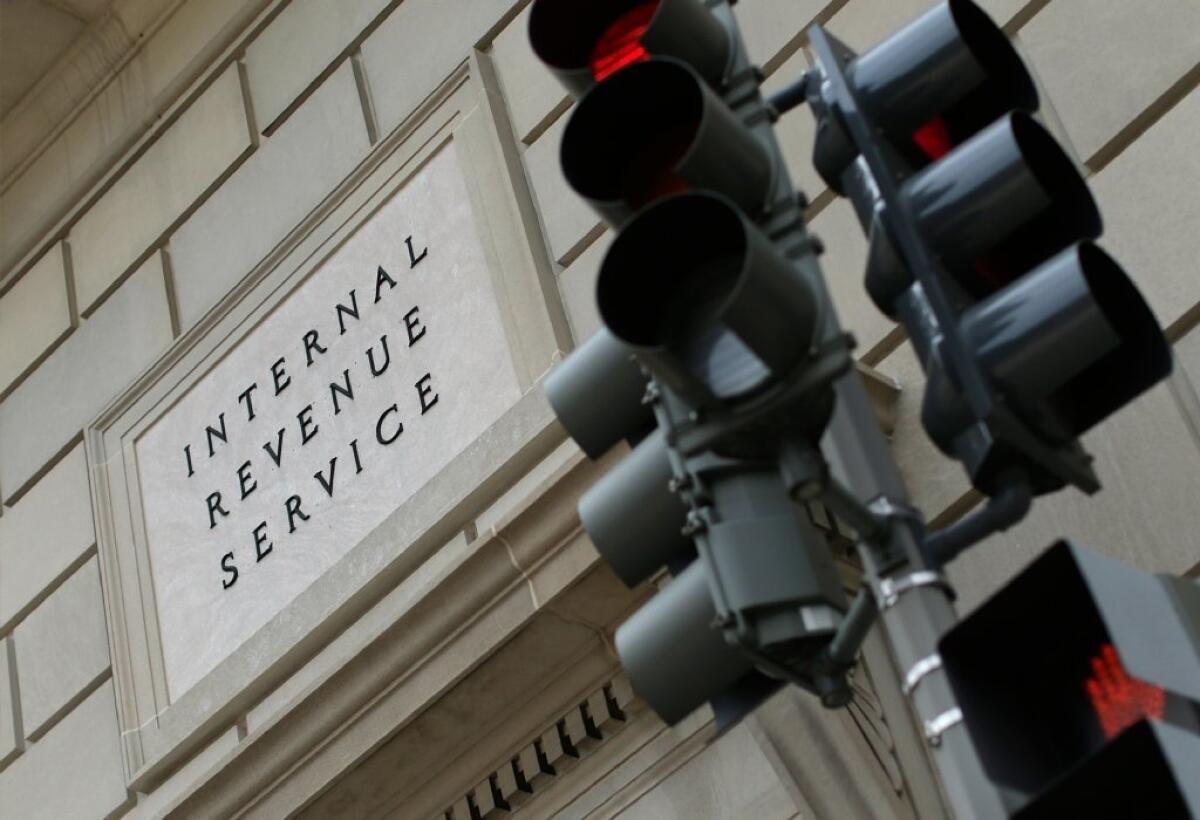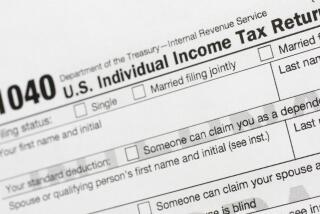Some Americans can get stimulus payments faster with newly launched IRS site

WASHINGTON â Americans can speed up delivery of their up-to-$1,200 coronavirus assistance payout through an IRS website that launched Wednesday.
The site allows them to provide bank account details needed to receive electronic payment, and to check when the payment will arrive.
According to the IRS, more than 6.2 million taxpayers used the site to learn their payment status Wednesday, and almost 1.1 million taxpayers were able to provide banking information. The IRS has direct deposit information for fewer than half of the countryâs estimated 170 million taxpayers and created the site to speed the stimulus to more Americans.
Although some people logged in easily and entered their bank account information or received a timeline for when money would arrive, there were reports from others who encountered delays or difficulties using the site.
The IRS said it was looking into the complaints and directed people to a list of frequently asked questions on its website.
To use the site, people will need information from their 2018 or 2019 taxes to prove their identity, Treasury Secretary Steven T. Mnuchin said this week at the White House. The site also allows people who have already provided the IRS with direct deposit information to verify which account the government has on file.
âYouâll be able to put in your direct deposit information, and within several days we will automatically deposit the money into your account,â Mnuchin said. âWe want to do as much of this electronically as we can.â
The site does not allow people to change the bank account information that the government already has on file. So if a person has since closed the bank account they used for direct deposit last year, the bank will send the money back to the government and the IRS will mail a paper check to the personâs last known address.
Many users on the site received the message âPayment Status Not Available.â According to the IRS, that message appeared because the person is not eligible for the payment, has not filed a 2018 or 2019 tax return and was required to, or recently filed a tax return that has not been processed. It also appears for people who receive Social Security, disability or Veterans Affairs benefits.
Taxpayers who have authorized direct withdrawals from their bank accounts to pay taxes will still need to provide direct deposit details to receive the payment, according to the IRS.
Amy Ballano, 55, of Myrtle Beach, S.C., said she and her husband have always owed money on their taxes and paid electronically. But when she tried to give her direct deposit information Wednesday, she got the âPayment Status Not Availableâ message.
âItâs funny the IRS can find you when they want you to give them money,â Ballano said.
Karen Yukawa, 31, of Torrance said she moved and got married since filing her 2018 return, and submitted a âmarried filing jointlyâ 2019 tax return a few weeks ago.
âI was scrambling to file our taxes really quickly so they would have our new information,â she said. But itâs unclear whether the 2019 return arrived in time or has been processed.
When she visited the site Wednesday, she learned a $1,200 stimulus payment had been deposited into the account she used on her 2018 taxes. Her husband received the âPayment Status Not Availableâ message. He has closed the bank account he used for 2018.
The first wave of payouts began Friday to people who had provided direct deposit information. Mnuchin said more than 80 million Americans were expected to receive the payout through direct deposit by Wednesday.
âWe know how important that is to all of those hardworking Americans, many of which are at home not working at the moment,â Mnuchin said.
Now that the financial stimulus is approved, when will people receive money to help with bills, groceries and rent? Our explainer has the answers.
Congress approved the up- to-$1,200 one-time cash payouts last month in the $2-trillion economic relief package, and the administration has worked to rush the cash to Americans who have seen their lives upended by efforts to curb the coronavirus. But millions of Americans donât have direct deposit information on file with the IRS, either because they donât normally receive a tax refund or prefer to receive a paper check. It could take weeks or even months for people who donât now provide direct deposit information to the IRS to receive a paper check.
All U.S. residents are eligible for a payment as long as they have a work-eligible Social Security number, cannot be claimed as a dependent on another personâs taxes, and meet the income requirements. Those with adjusted gross income below $75,000 (or $150,000 for a married couple) would receive $1,200 per adult or $2,400 for a married couple. In addition, they are eligible for an additional $500 per child under 17. Individuals who make $75,000 to $99,000 (or married couples making $150,000 to $198,000) are eligible for a portion of the payment.
Firefighters and law enforcement officers from L.A. to Laguna Beach express their gratitude to healthcare workers for their efforts in fighting COVID-19.
Taxpaying immigrants without legal status will not get a stimulus check.
Social Security recipients, even those who didnât file taxes in 2018 or 2019, should receive the money automatically. The IRS will use information on file with the Social Security Administration.
Also Wednesday, the Treasury Department announced that those who receive SSI benefits â often called disability benefits â will not have to file a tax return in order to get the payout, unless they have a dependent. Those without a child dependent will receive the payout in early May through the same method they normally receive benefits, either through check, direct deposit or debit card, according to the department.
Those with a dependent will need to give the IRS some basic identifying information to receive the $500 per child rebate by using a site created last week by the IRS to allow people who do not normally have to file taxes to provide the IRS with their direct deposit information. That site is largely targeted at low-income people, the homeless and others who, it is feared, may fall through the cracks with this relief package. It should be used by people whose gross income did not exceed $12,200 for an individual or $24,400 for married couples for 2019 and who were not otherwise required to file a federal income tax return for 2019 and didnât plan to.
Members of Congress had raised concerns that SSI recipients may not earn enough normally to be required to file a tax return and would not receive the payout.
House Veterans Affairs Committee Chairman Rep. Mark Takano (D-Riverside) and other members continue to push the department to find a similar solution and use existing Veterans Affairs information to get the money to disabled veterans without requiring them to file a tax return.
âNot finding a solution, thatâs not acceptable to me. These folks are going to need these checks sooner, not later, and if we donât find a solution, many of them simply wont get it,â Takano said.
More to Read
Get the L.A. Times Politics newsletter
Deeply reported insights into legislation, politics and policy from Sacramento, Washington and beyond. In your inbox three times per week.
You may occasionally receive promotional content from the Los Angeles Times.













